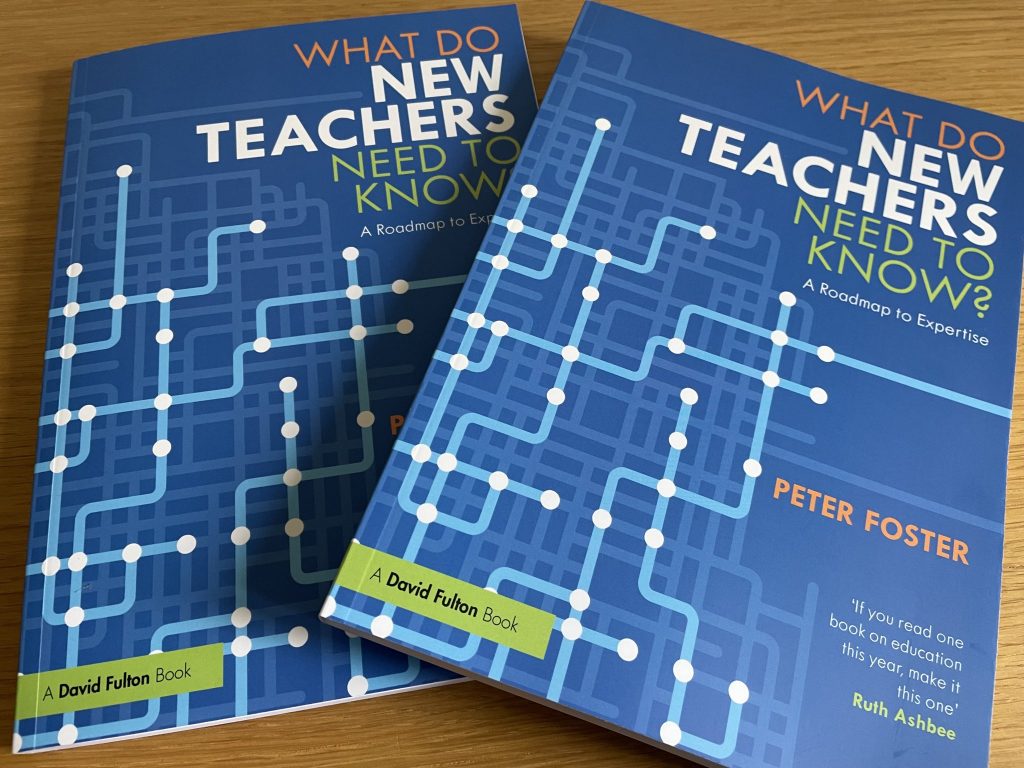Yesterday, I had a bit of an epiphany. It suddenly occurred to me why it is that tutoring can help anxious students so successfully.
Anxiety is not a professional specialism for me, and I’ve never experienced anxiety myself. Like all people, I’ve faced my challenges, but feeling overwhelmed by anxiety has never been one of them. Mind you, in the era I grew up in, such things were not named and certainly not medicalised. Whatever my views on the undeniable over-use of recognised psychiatric conditions to describe normal feelings (and believe you me, I have some), I think it is also undeniable that there is a genuine uptick in young people who experience what I would definitely call anxiety in some form.
When I first started teaching in 1999, I do not recall children’s anxiety even being mentioned as something I would have to deal with during my career. Fast forward to my final couple of years in the classroom, and you could not walk down a corridor without discovering a student outside virtually every classroom: not because they had been thrown out for poor behaviour, but because they were refusing to enter it in the first place. There was – without question – an explosion in students who were citing anxiety as the reason for their reticence. Some of them school-refused altogether and I had more than one student that I would see only once in a blue moon, so chronic was their conviction that school was a terrifying place. I have some hypotheses as to what has changed in society to spark this epidemic, but it is not my intention to explore them here. My intention is to examine the small part I can currently play in getting some kids back into the classroom.
As I have already stated, I would never claim working with school-refusers or children crippled by academic anxiety as a specialism. I have no significant training in this field and if anything I have endeavoured to avoid it. Bottom line, I believe children should be in school. There are exceptions to that rule in extremis, but the current and growing trend towards home-schooling as a viable option causes me genuine concern. Children are better off in school for a whole myriad of reasons, not least the fundamental and inescapable truth that school is the norm and thus integral to one’s experience as being a part of society. Saying this won’t win me any friends amongst my peers and competitors, but here goes: I am concerned that too many people in the tutoring industry find the upsurge in homeschooling professionally very convenient. Homeschooled students – unlike those attending school – open up the opportunity for daytime work, and lots of tutors want that. I worry, therefore, that professional tutors are not as motivated to get kids back into school as they should be. As a result of these concerns, I have increasingly steered clear of working in this field: I do not want to be a part of an industry that benefits financially from children being outside the school system.
Despite all my concerns and despite my lack of training in this field, countless parents have attributed to me their child’s increase in academic confidence and in some cases a return to the classroom. Much of this is in some ways unsurprising. I have written many times on the reasons why one-to-one tutoring is so remarkably powerful and effective, and this applies all the more so when a child has felt isolated, abandoned or forgotten in a classroom setting. But something more is going on with these most anxious of students, I suspect, and yesterday it hit me:
It’s because I can push them, and force them to take risks in a safe environment. Nothing is more effective when it comes to defeating anxiety.
In a classroom, a teacher has to pitch the class at one level for all. Inevitably, this carries the risk of some students becoming bored and disengaged by the lack of challenge, alongside the risk of others failing to understand what is happening. This is not just true of the lesson overall, it is true of every component part. Anxious students tend to fall at every hurdle, as their fight, flight or freeze response means that they spiral into panic and/or give up as soon as they sense danger – in their mind, that “danger” means as soon as things get tricky, as soon as they encounter something they don’t understand or as soon as they get something wrong. In any one lesson, that’s happening constantly, or at least it should be – learning cannot take place without challenge, micro-failure and frustration. In such a classroom setting, anxious students tend to take themselves out of the situation – either by physically leaving the classroom or by staying in their seat and disengaging; for example, answering “I don’t know” every time they’re asked a question, or even refusing to open their mouth at all. Classroom teachers even find themselves instructed by SLT, Heads of Year, SENDCos, parents and others not to ask certain students a question because – we are informed – they are too anxious to cope with it. Nothing could be more damaging to the educational process; if professional adults genuinely believe that a child literally cannot cope with being asked a question in class, then we have a major educational emergency on our hands. The solution is not to stop asking them questions. That simply isn’t good enough.
Happily, now out of the classroom, I can do what I like. When faced with an anxious student in a one-to-one scenario, I can afford to take risks. Firstly, before any risk-taking takes place, I can ensure that they really do understand something on a level that may not have happened for them before. Anxious students are so risk-averse that they are not good at taking a punt or going with the flow – they don’t trust that they understand anything well enough, so they need everything unpacked in detail. Once I have gained that student’s trust (and it doesn’t take long), they can ask all the anxious questions they’ve been storing up over the years and never felt able to ask. In this way, they can gain a command of the basics they’ve never had before, which empowers them to tackle more complex challenges.
At this point, the freedom I possess as a one-to-one tutor is immense and liberating. I can present my anxious tutee with something they never thought they could do and I can push them into doing it. In a one-to-one session, this is partly because the situation allows infinite freedom for row-back: if my instincts are wrong and the challenge is too great, I have the possibility of ditching the idea altogether before things get sticky, or of coaching the student through the process in incremental steps so that they cover the ground they could not have covered alone. Usually, my instinct is to do the latter – the need to abandon a task is vanishingly rare, but the option is always there. As the student’s trust in the process grows, so does their confidence.
Nothing is so wonderful as the look on a student’s face when they do something they did not believe themselves to be capable of. Nothing is more potent when it comes to smashing through the invisible barrier that anxiety weaves around these students. Nothing gives me greater joy than watching them fly past that barrier like it was never there in the first place.







